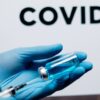Big news this week about the first research on remdesivir as a treatment for COVID-19. Remdesivir is an antiviral medication initially developed years ago by Gilead Sciences as a potential treatment for ebola. Remdesivir ultimately failed as a treatment for Ebola.
Not A Good Study
Remdesivir received a lot of media attention on Friday as The New England Journal of Medicine released a study examining the drug in 53 patients with severe COVID-19 who were given the drug under a “compassionate use” basis. This was not a well-done study even though many of the articles written about it viewed the results in a positive light – 68% of the patients showed improvement in oxygen support. It is important to view the results with a critical eye for several reasons:
- There were only 53 patients included in this particular trial (although there are many other remdesivir trials ongoing around the world), and it’s hard to draw conclusions with such a small number. Usually, drug trials need to have least 1,000 patients enrolled before any determinations can be made about the findings.
- The study had no comparison group who were given a different drug or different treatment. Without a comparison group it’s hard to know if those who recovered would have recovered anyway or people who died perhaps would not have died.
- This was not a double-blind study (both doctor and patient don’t know if the patient got the drug, the placebo or perhaps an alternate drug). The combination of double-blind and placebo-control in a trial is what’s known as the “gold standard” for conducting studies involving drugs and is usully required before the results are considered useful.
- The trial was funded by Gilead who makes remdesivir, so they have a vested interest in the results.
- 13% of patients in the trial ultimately died.
Which patients should be studied?
“There is also a wider question of which are the right patient populations to look at,” according to Duncan Richards, MD, a clinical pharmacologist at the University of Oxford. (https://www.sciencemediacentre.org/expert-reaction-to-a-study-about-compassionate-use-of-remdesivir-for-patients-with-severe-covid-19/). “There is an increasing view that the most serious consequences of the disease result from the immune response as opposed to viral replication per se. The performance of antiviral treatments in general has been disappointing, perhaps for this reason. However, a bigger effect with these drugs might therefore be expected earlier in the disease rather than later phases.”
Side Effects And Death
As far as safety is concerned, 23% of patients in the trial experienced serious adverse events. This included multiple organ failure, septic shock, acute kidney injury and hypotension. In preclinical studies of remdesivir, the most notable adverse event observed was ridk to the liver through transaminitis, high levels of enzymes known as transaminases which play key roles in the functioning of the liver. The condition went away after the therapy was stopped (https://www.contagionlive.com/news/is-remdesivir-a-viable-option-for-treating-covid19). Other events seen in clinical trials were mild gastrointestinal upset and phlebitis, a vein inflammation common with drugs that are given intravenously. For more on known side effects of remdesivir see Coronavirus Treatment: Does It Already Exist?
How does remdesivir work in the body?
Despite the drawbacks of this latest study, there is still reason to believe remdesivir could be an effective treatment. The way remdesivir works in the body seems promising, at least in theory. The drug is designed to block the ability of COVID-19 cells to make copies of itself. As a result, the copies do not have the full RNA genome of the virus, preventing them from making additional copies or infecting other cells.
More Drug Trials Coming
We really won’t have a better idea on the efficacy and safety of remdesivir until we get more data from more robust clinical trials. The bad news? One such trial that began in China in February has been discontinued due to enrollment difficulties. The good news is a readout of one of two trials Gilead has been conducting (separate from the NEJM study) is expected later this month. This trial is expected to enroll 2400 patients with COVID-19. Gilead’s other trial, in 1600 moderately ill patients, is expected in late May, as is an 800-plus global trial in moderate, severe and critical patients..
One red flag about the two Gilead trials is that the company has changed the primary endpoints (the measurement of success) in both. In the first trial, with severe patients, the original endpoint was number of patients released from hospital by day 14; for the second trial due in May, the goal was normalization of temperature and oxygen levels through day 14. Endpoints for both are now improvement on a seven point scale with 0 being death and 7 being released from hospital.
“Some of the currently recruiting trials have more than one active treatment as well as a placebo group, and they will have even more valuable results,” noted Stephen Evans, a professor of pharmacoepidemiology at the London School of Hygiene & Tropical Medicine. “It is a first step to show that a drug is better than nothing (the intention of using a placebo as a comparator), but it is as important to know which of perhaps several drugs that work, which is better or best.”






